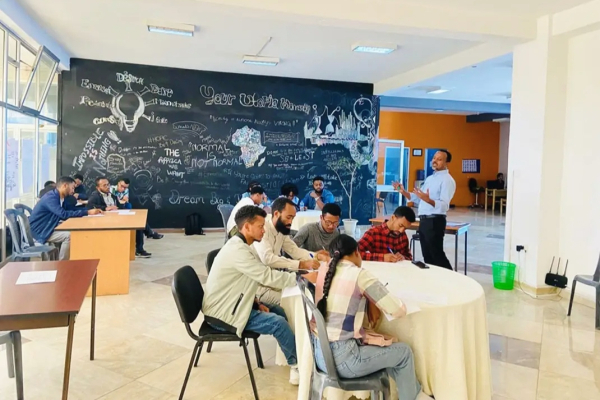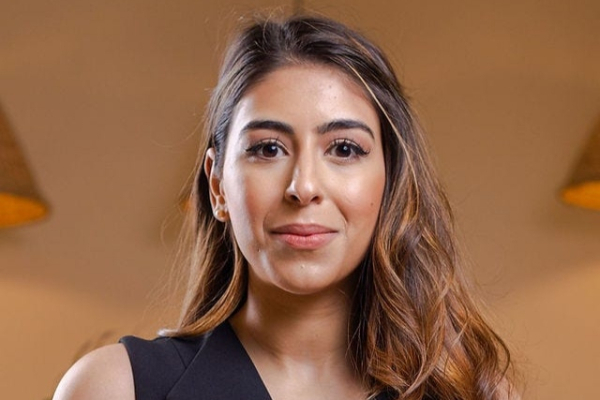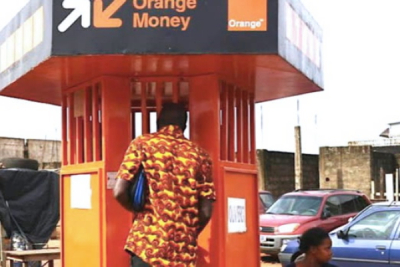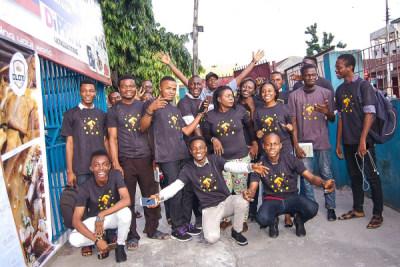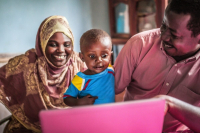Through its incubation and acceleration programs, it stimulates innovation and supports entrepreneurs across the continent. It has supported over 1,000 startups and created thousands of direct and indirect jobs.
xHub Addis, an incubation and acceleration center founded in 2014 by entrepreneur Tewodros Tadesse, is a hub for IT entrepreneurs, innovators, technologists, investors, technology companies, and coders in Ethiopia.
Based in Addis Ababa, the center offers a range of services for startups, including custom software development, IT management services, training, IT strategy consulting, and web development. It aids in the development of businesses and services across various sectors, including information technology, agribusiness, communications, health, transport, engineering, art, design, and education.
xHub Addis has established various incubation and acceleration programs, workshops, events, and networking opportunities to foster leadership and entrepreneurship across a wide range of industries. These efforts aim to cultivate successful innovators.
Among its programs is the Waka Tech Project, a 3 to 5-month initiative that invites companies specializing in technology, education, climate, sustainable solutions, fintech, and more. The center also served as a consultant to the Tifter Ethiopia program of the Ministry of Innovation and Technology and the UNDP, designed to find and support innovators creating solutions to prevent, detect, and control COVID-19.
In terms of impact, xHub Addis has incubated 1,500 companies and graduated 1,200 startups, creating 5,000 indirect jobs and 300 direct jobs. It is supported by several institutions, including UNDP, Mastercard, the British Council, Rotary International, Amref Health Africa, and Reach for Change.
Melchior Koba
After acquiring international experience through studies and corporate roles in England, she returned to her native Kenya to contribute to the continent's financial landscape. She has co-founded Ndovu, a digital investment platform designed to facilitate investments in local and international financial markets.
Radhika Bhachu (photo) is a Kenyan entrepreneur known for co-founding and leading Ndovu, a startup that simplifies saving and investing for Africans. Bhachu, who holds a Bachelor’s degree in Mathematics from the University of Nottingham (2011), has been instrumental in Ndovu’s growth since its inception in 2020.
Ndovu is a digital investment platform that provides expert financial advice tailored to the unique needs and goals of its customers. The startup’s mission is to make investing in financial markets safer and more affordable. It aspires to be recognized as a regional leader in the provision of financial investment solutions in Africa and envisions a future where Africans secure their financial futures through its platform.
To achieve its vision, Ndovu offers several products. Ndovu Sure provides users with a secure way to earn money based on their investment risk profile and planned investment period, making it ideal for diversifying investment portfolios, establishing emergency return products, or preserving capital. Ndovu Goal-based Saving helps customers increase their wealth by building a personalized portfolio according to their financial objectives. The startup also offers a wealth management API, the Ndovu Embedded Wealth Management API, which enables partners to offer personalized investment and savings products.
Bhachu’s professional journey began with an internship at the British banking and finance group HSBC in 2008. She later joined Deloitte Consulting as a senior consultant in 2011 and moved to BlackRock, an asset manager and technology provider, as a relationship manager in 2015.
Melchior Koba
Building on its recent foray into Senegal, British financial technology company TerraPay has secured a strategic partnership in Mali.
Orange Finances Money Mali and British fintech firm TerraPay have joined forces to enable seamless cross-border mobile money transfers for Malian users, connecting them to a vast network across Africa and the world.
The partnership, announced Monday, empowers Orange Money Mali customers to directly receive funds from multiple countries through TerraPay's global platform. "This strategic collaboration simplifies transactions, making them quick and secure, enhances the customer experience for Orange Money users, and strengthens financial inclusion in Mali," said Djeneba Tandjigora, Chief of Transfer Services and Core Business at Orange Finances Money Mali.
Mobile money has revolutionized African finance, with the continent leading the globe in adoption. According to the GSMA's "State of the Industry Report on Mobile Money 2023," Africa boasts 781 million active accounts, representing 48.81% of the world's total. This translates to a 17% surge compared to 2021.
"With a direct connection to Orange Finances Money Mali, TerraPay can ensure a seamless cross-border payment experience, reducing operational issues and providing prompt assistance to our partner’s clients," said Amel Kane, Regional Sales Manager Francophone West Africa at TerraPay.
TerraPay's robust network spans over 120 countries for receiving funds, and over 210 for sending, and connects to over 7.5 billion bank accounts and 2.1 billion mobile wallets worldwide.
Adoni Conrad Quenum
Education technology (edtech) startup iSchool from Egypt has closed a $4.5 million funding round, fueling its plans to expand across the Middle East and North Africa (MENA) region. The investment will support the development of its technology platform and drive growth in six key markets.
Olotu Square is dedicated to building success stories in technology and entrepreneurship. With its team and innovative programs, it supports young entrepreneurs in building their businesses.
Olotu Square, a technology innovation hub based in Port Harcourt, Nigeria, has been making strides in empowering young people with innovative technologies and fostering employability and entrepreneurship since its inception in 2016.
Founded by Bruce Lucas and currently led by President and CEO Aima Atigari, Olotu Square began as a simple software technology company. It has since implemented a series of programs and activities, particularly in the Niger Delta region of Nigeria. These initiatives include STEM training, campus visits, industrial training, training events, intensive employability courses, an employment support program, skills outsourcing, entrepreneurship training, start-up incubation, and the establishment of an innovation laboratory.
The center also features a coworking space to encourage collaboration between entrepreneurs and provides invaluable business support, mentoring, and networking to help entrepreneurs throughout their start-up journey.
Olotu Square is one of the partners of the Africa Netpreneur Prize Initiative (ANPI) for West Africa, a competition that seeks to discover African entrepreneurs whose stories inspire the continent. The 10 finalists have the opportunity to present their pitch to judges for a chance to win a $1 million prize.
In addition to partnering with angel investors and venture capitalists to fund start-ups, Olotu Square has collaborated with government partners to strengthen their impact. As a member of the AfriLabs network, the center is supported by Coworkers, Google, and VC4A (Venture Capital for Africa), among others.
Melchior Koba
Côte d’Ivoire’s telecom regulator ARTCI issued a statement on Thursday urging caution to safeguard telecommunications infrastructure during the upcoming Africa Cup of Nations (AFCON) football tournament.
The tournament, running from January 13 to February 11, is expected to attract large crowds and high demand for network services. In that context, ARTCI is calling on the public to avoid damaging crucial equipment, including optical fiber cables, transmission towers, and batteries.
In 2021, Gabon launched a three-year acceleration plan to transform its economy. To carry out its projects, the country is receiving support from key partners such as the World Bank.
The government of Gabon and the World Bank have signed a $68.5 million loan agreement to fund the country's digital transformation project, "Gabon numérique", according to a press release issued by the financial institution on Tuesday, January 2.
The funding aims to accelerate the adoption of digitized public services, increase the number of people with a unique identifier, and strengthen data protection, cybersecurity, and secure data exchanges within the public sector.
"Digital transformation has been at the center of the country’s economic and social transformation for the past decade. This is critical to promote opportunities for all Gabonese citizens and residents. It will benefit individuals and businesses by improving the affordability, availability, and quality of public service delivery," said Cheick Kante, World Bank Country Director for Gabon.
The loan agreement comes as the country is accelerating its digital transformation projects. In July, an agreement was signed with the Indian group Shapporji-Pallonji for the construction of a national data center. Other projects, such as the digitization of the healthcare system, education, civil registration, and numerous citizen services, are currently underway in the country.
The World Bank's support is expected to back the implementation of these projects, address persistent inequalities in accessing public services, and contribute to the provision of a single identity for all citizens to facilitate their access to public services, including social protection, health insurance, and public procurement.
Samira Njoya
An entrepreneur, she has many years' experience in the telecommunications, consumer products and satellite broadcasting sectors. In December 2023, she won Ghana's Technology Leadership of the Year award.
Adelaide Abbiw-Williams, President and CEO of SES HD PLUS Ghana Ltd, a subsidiary of global content connectivity solutions provider SES, was awarded the Technology Leadership Award at Ghana's fifth annual National Communications Awards in December 2023.
The award recognized the company's commitment to innovation, leadership, and the empowerment of women and youth in the media and technology sectors. SES HD PLUS GH, under Abbiw-Williams' leadership, also received the Innovation in Digital Solutions of the Year award.
"I am grateful to receive the Technology Leadership Award of the Year at the National Communications Awards 2023, and proud that SES HD PLUS GH also earned 'Innovation in Digital Solutions of the Year.[...] Kudos to Team HD+ and our Partners for making it happen. This win is for all of us! Looking forward to collaborating with more stakeholders so we can push boundaries and inspire change in the world of satellite TV technology," Abbiw-Williams said.
Abbiw-Williams, who joined SES in 2020 as Marketing Manager for SES Video in West Africa, has been heading SES HD PLUS Ghana since January 2023. In June, she created the LeadHERS Lean-In Circle and the HD+ LeadHERS Xperience platform to foster collaboration between like-minded women leaders. In October, she launched a satellite installation training program for Ghanaian female prison guards.
The Ghanaian executive holds a Bachelor's degree in Mathematics and Statistics from the University of Cape Coast and a Master's degree in Business Administration from Lancaster University. Her professional career began in 2007 at Nestlé Purina North America as a Regional Sales Analyst. She later joined Nestlé Ghana in 2009 as a Sales Development Specialist and Vodafone Ghana in 2011, where she held various managerial positions before leaving the company in 2020.
Abbiw-Williams also won the Outstanding Women in Leadership Award at the 2023 Women's Choice Awards Africa organized by Global Ovations Ltd.
Melchior Koba
Generative artificial intelligence (AI) has achieved remarkable strides in 2023, with its deployment accelerating globally. The technology’s transformative potential is finding significant traction in Africa. However, its full adoption on the continent requires careful consideration and the implementation of several precautionary measures.
With interest growing for artificial intelligence in Africa, Seydina Moussa Ndiaye, a member of the United Nations' AI advisory body, urges African nations to exercise control over the burgeoning field. In an interview with UN News, he expresses concern that Africa could become a testing ground for new AI solutions without adequate oversight.
Ndiaye, who has contributed to the digital transformation of higher education in Senegal and the development of the Pan-African AI strategy, warned that the combination of AI and advances in biotechnology could be exploited, with Africa potentially serving as the testing site for these new solutions.
“The power of AI combined with advances in biotechnology or technology could be used, and Africa could be the place where all these new solutions are actually being tested,” he said.
He criticized the current regulatory framework, arguing that it fails to account for certain aspects and is ineffective in applying existing ideas and regulations. "In concrete terms, and when you don’t control these things, it could happen without anyone knowing. We could have Africa being used as a Guinea pig to test new solutions, and this could be a great, great threat for the continent," Ndiaye cautioned.
Despite these concerns, Ndiaye acknowledged the immense potential AI holds for Africa, particularly in sectors such as agriculture and healthcare, where it could address issues including staff shortages. He also highlighted the role of AI in promoting African cultural identities, which he believes have struggled to gain global recognition.
In response to the opportunities and challenges presented by AI in Africa, Ndiaye revealed plans for a forthcoming pan-African strategy aimed at guiding the development of the technology across the continent.
After developing various e-health applications, the Canadian firm is looking to take on new challenges in the healthcare technology sector.
Yulcom Technologies, a Canadian IT and AI consulting firm with operations across Africa, announced a $2 million two-year investment in developing an AI-powered medical diagnostic aid system.
"Our solution contributes to solving a major public health issue, that of supporting medical staff who are under pressure from a shortage of healthcare workers," said Yulcom’s CEO, Youmani Jérôme Lankoandé, on Wednesday.
Across Africa and the world, AI is increasingly infiltrating diverse sectors, including healthcare, where its potential for revolutionizing diagnosis is attracting substantial interest. Yulcom, led by Burkina Faso-born entrepreneur Lankoandé, is joining this wave with its upcoming Diagnostic Assistance System.
"YULCOM puts forward an innovative vision in the design of AI models that can reduce waiting times for specialist consultations and improve survival rates for patients in the most remote or under-served areas," explains Komi Sodoké, Yulcom's director of AI Projects.
However, concerns regarding AI ethics and responsible use remain prominent. In November, 18 countries, including Nigeria, signed an agreement to prevent AI misuse. The United Nations also established an AI advisory committee to underscore responsible AI development and implementation.
Adoni Conrad Quenum
More...
Schools everywhere had to close for COVID-19, so teaching online became super important, like a must-do. But just throwing kids online isn't enough. Schools need new tools and new ways of teaching to make sure students learn what they need in a world that's always changing.
To modernize education and enhance transparency, the Tunisian Ministry of Education on Wednesday launched "L’école de la Tunisie du futur," a comprehensive digital platform for students, parents, and teachers.
Accessible at http://www.tarbia.tn./fr, the platform provides dedicated portals for each group, streamlining administrative processes, facilitating distance learning, and offering real-time student monitoring. Parents can track attendance, assignments, and progress reports, while educators can manage classes and engage with students remotely.
This digital initiative dovetails with the Ministry's broader strategy of integrating technology into schools and closing the digital divide. The “Modern School on Every Hill" project aims to connect 3,300 schools to broadband internet by the end of the year, bridging the connectivity gap in rural areas.
According to Minister of Education Mohamed Ali Boughdiri, with the digital transition being crucial to improving education quality, the platform not only promotes transparency and efficiency but also streamlines essential services such as school meals, scholarships, and guidance.
Samira Njoya
Moroccan telecom operators Itissalat Al-Maghrib, Medi Telecom, and Wana Corporate have joined hands to establish a national Internet Exchange Point (IXP) to revolutionize the country's internet landscape.
The IXP, unveiled through a memorandum of understanding signed at the national telecom regulator ANRT’s headquarters in Rabat, will serve as a central hub for routing and exchanging domestic internet traffic.
In a bid to enhance transparency, efficiency, and combat corruption, Togo has embarked on an ambitious digital transformation journey, focusing on key sectors like taxation. Following the lead of several African nations, the West African country aims to leverage technology to streamline administrative processes and improve resource traceability.
Togolese drivers can now ditch the queues and pay their motor vehicle tax (TVM) from the comfort of their smartphones, marking a new chapter in the country's digital tax revolution.
The Togolese Revenue Office (OTR) launched the online payment system on Tuesday, January 2, following its December announcement. The move streamlines tax compliance for vehicle owners, eliminating the need for time-consuming visits to physical offices. It also contributes to improving the level of tax collection and ensures greater transparency in operations.
The online TVM payment is part of a broader digitization push by the OTR to modernize tax administration and boost revenue. Several other services, including tax identification (NIF) acquisition, have already gone digital. Through the nif.otr.tg platform, Togolese citizens can now obtain their NIF, pay taxes and fees, register real estate, and access other services, all from their mobile phones.
According to recently published OTR figures, tax revenues have doubled in the past decade, soaring from XOF403 billion (around $673 million) in 2013 to XOF865 billion in 2022.
Samira Njoya
Algeria's ambitious drive to digitize its economy is starting to bear fruit, with key sectors experiencing tangible benefits from the government's focus on technological advancements.
Algeria is fast-tracking its journey towards a fully digitized government, with President Abdelmadjid Tebboune announcing the ambitious goal of "total dematerialization" of public services by mid-2024. The ambitious digital overhaul aims to simplify citizen interactions, streamline administrative processes, and reduce reliance on physical services.
In a landmark address to parliament on December 25, Tebboune outlined significant progress in digitizing key sectors, including national land registry, taxes, customs, healthcare, and digital identity. He declared, "By the end of 2024's first half, we will have definitively settled this question."
The push for digital transformation has gained momentum throughout 2023. Under Tebboune's directive, several initiatives have modernized crucial areas like education, where over 46 digital platforms for training and research were launched by the Ministry of Higher Education. Similarly, the labor, employment, and social security sector has seen numerous online platforms introduced, aiming to expedite service delivery and reduce the need for physical visits.
To spearhead these efforts, a High Commission for Digitization, led by Meriem Benmouloud, was established in September. This body is tasked with crafting the national digitization strategy and ensuring its effective implementation. Benmouloud confirmed that the strategy, currently under development, will be further bolstered by a dedicated law on digitization expected in the first quarter of 2024.
Samira Njoya


